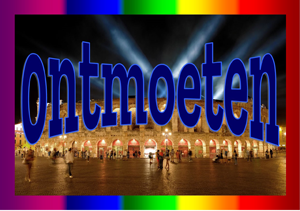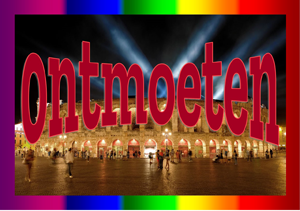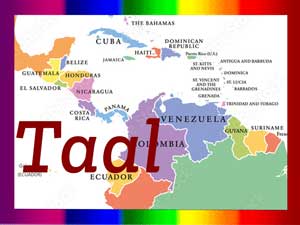Fred de Haas
January 2020
EN 1, EN 2, NL-1, NL-2
The epilogue of my book ‘Soul of Sefarad’ (‘Geest van Sefarad’, 2017, SWP Editors, Amsterdam) contained a few critical comments on the politics of Israel regarding one of the original peoples of Palestine: the Palestinians. Since the scope of the book left little room for a nuanced view on this complicated subject, I planned to elaborate some other day on the political situation in Israel with the necessary arguments and leaving, of course, the final judgment to the reader.
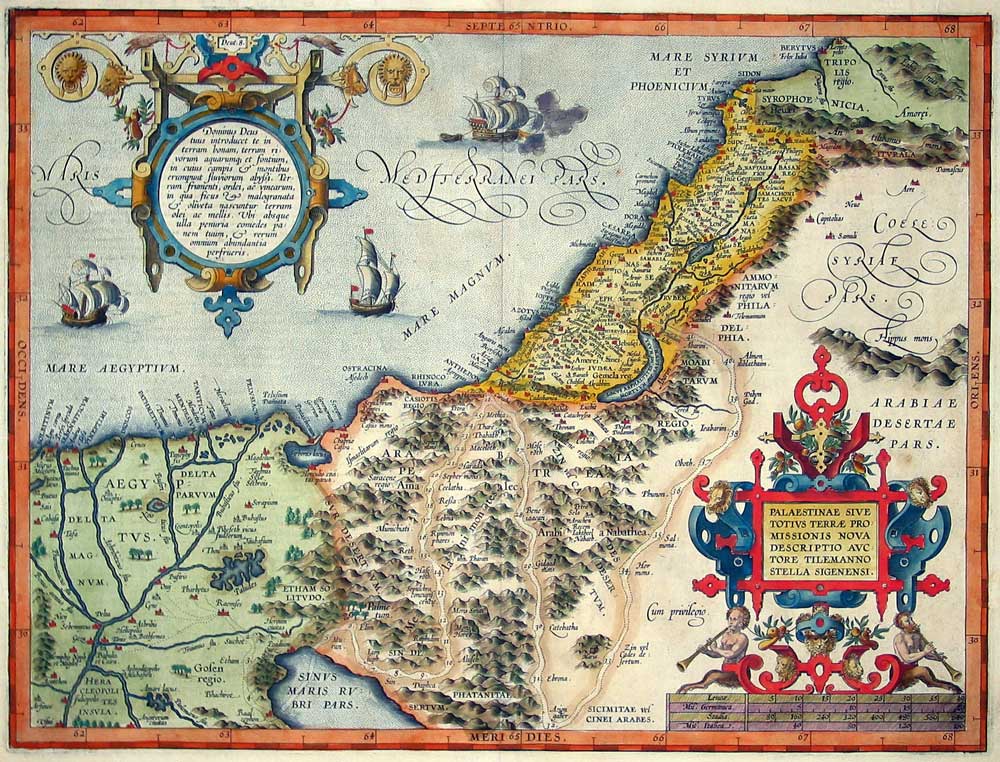
In August 2018, I watched a TV programme on Dutch TV, in which the journalist Coen Verbraak interviewed a number of religious leaders in the Netherlands. In those interviews, he tried to figure out what inspired them. One of the chosen religious leaders was the Chief Rabbi of the Dutch Rabbinate who described Israel as the ‘promised’ country and as ‘our Jewish country, full stop!’ When Verbraak inquired after the legitimate foundations of this position, the Chief Rabbi replied with determination that these were the Bible and the Jewish faith.
The fact that someone could talk with so much conviction about the ‘Promised Land’ and give an age-old storybook like the Bible ― indeed, not exactly a notarial act ― in evidence for his theorems was the reason why I finally decided to put my thoughts and comments on paper.
I always wondered how people would react when large numbers of Arabs from the Middle East would plan to go to Spain in order to establish a Muslim state in Andalusia for the simple reason that their ancestors had been living there for 800 years before they were expelled from the country in 1492 by the Catholic Kings of Spain.
I also wondered whether the descendants of the hundreds of thousands of people who in of the course history had converted to Judaism could all rightfully claim Israel as their homeland.
Let us first outline in large traits which situations and people have contributed to the foundation of the State of Israel in 1948 and what consequences this has had to the present day both for the Jewish and for the Islamic and secular population of the country. Let us also bear in mind that the first pioneers were very much aware of the fact that there was an Arab presence in Palestine and that this fact could create a major problem.
The Biblical stories as major incentives to the genesis of Zionism
The idea of a possible return of the Jews to Palestine has not appeared out of the blue. The miserable situation which the Eastern European Jews found themselves in at the end of the 19th century turned out to be an important reason for this movement.
The Bible served also as a distinguished source of inspiration. Many people had access to it. At the time of the Reformation, the Bible was translated into the colloquial language, i.e. the language that the ‘ordinary’ people, who did not know Latin or Greek, could understand. Calvin translated the Bible into French, Luther into German, the State Bible was published in Dutch and in 1538 Henry VIII introduced an English Bible translation in all churches of England. In 1611 the Bible was retranslated and would go into history as the ‘King James Bible’.
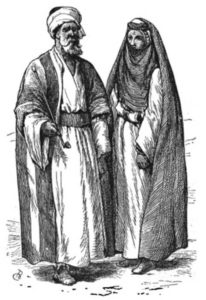
The Bible, a book written and rewritten by a heterogeneous number of authors in the course of many generations, was, despite its understandable duplications and lack of inner coherence, a bestseller and was often the only book in the house that was regularly read at the dinner table. The protagonists of the Old Testament acquired a sort of hero status. Finally, their descendants would leave Palestine and settle for centuries in places outside Palestine with all the persecutions that followed. In the 13th century they were exiled from England and in 1492 from Spain, after which they spread across North Africa and Europe.
There is no proof of their being chased out of Palestine by the Romans.
The Middle East, of which Palestine formed part, came under Ottoman rule. The fact that Muslims had conquered the ‘holy’ country became the reason for the organization of the infamous Crusades inspired by the Popes, resulting in the conquest of Jerusalem in 1099.
The Crusaders then founded in the Middle East their own States that would survive for two hundred years. The Middle East remained part of the mighty Ottoman Empire until this Empire collapsed during World War I.
Palestine would remain a predominantly Islamic country for 1300 years.
From the twelfth to the eighteenth century, tens of thousands of Christians went on a pilgrimage to Jerusalem. At the time the Jews showed little or no interest in visiting Palestine. However, in the 12th century a rabbi from Regensburg by the name of Petrachia wrote a report in which he mentioned that about 300 Jewish families were living in Jerusalem.
The early role of England
At the end of the eighteenth century, England gradually began to gain influence in Palestine. In 1799, the British fleet had helped the Turkish Sultan to oust Napoleon who besieged Akko on the Palestinian coast. In 1838 Lord Palmerston was to send the first British consul to Jerusalem.

England would once again have an opportunity to please the Turkish Sultan in 1840. Then the British helped to chase away the Egyptian ruler Mohammed Ali Pasha, who had conquered Syria and Palestine in 1831. The Ottoman Empire had weakened considerably by that time and the Sultan was nicknamed ‘the sick man on the Bosporus’.
Return to Palestine
In the 19th century, the idea began to emerge to help the Jews to return to Palestine while at the same time converting them to Christianity. The latter, rather absurd idea was being promoted by Prof. Alexander McCaul, who taught Hebrew at King’s College in London and by the writer Edward Bickersteht (‘The Restoration of the Jews to their own country’, 1841).
In England there were both adversaries and supporters of Jewish emigration to Palestine. As a matter of fact, imperialistic thinking was still in its infancy around the middle of the 19th century. But the tide began to turn when England conquered Egypt in 1882 and acquired 44% of the shares in the Suez Canal, thanks to the English philanthropist and banker Lionel de Rothschild.
The pursuit of a Return to Palestine would go into history under the name ‘Zionism’. The name ‘Zionist’ can have both a neutral meaning (a supporter of Zionism) and simply designate a ‘Jew’. In the latter case, unfortunately, it sometimes has anti-Semitic undertones. It goes without saying that in this article ‘Zionist’ and ‘Zionism’ have a strictly neutral meaning.
The 19th century
Zionism
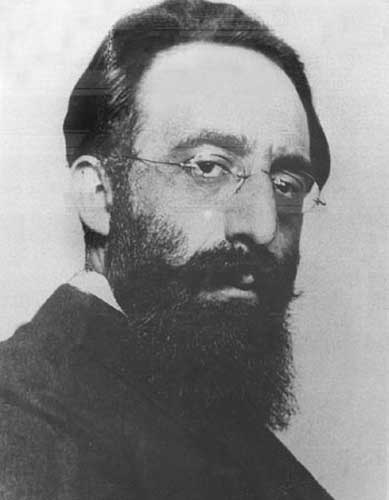
The term ‘Zionism’ derives from ‘Zion’, the name of the Temple Mount in Jerusalem. It generally means the Jewish pursuit of their own, national State in Palestine. The term was introduced by the Austrian journalist Nathan Birnbaum (1864-1937) and then adopted by Theodor Herzl who, unlike Birnbaum, gave it a political twist..
Nathan Birnbaum was also a champion of the general use of Yiddish, a pursuit in which he differed from the Lithuanian Eliezer ben Yehuda, a physician who studied in Paris and one day decided to speak only Hebrew.
Peculiarly enough, when BenYehuda was in Jerusalem, he had to defend his position against the Orthodox Jews who felt that Hebrew could only be used for prayer and liturgy.
In the 19th century, interest in Palestine began to rise sharply. European Consulates were established and the Suez Canal was to play an important role in the complicated situation around Palestine.
The city of Jerusalem acquired a huge political and symbolic value. Herzl would fight for the political rebirth of the Jews and founding of a Jewish State that, in his opinion, would preferably start with the establishment of Jewish colonies in what he called ‘the land of his ancestors’.
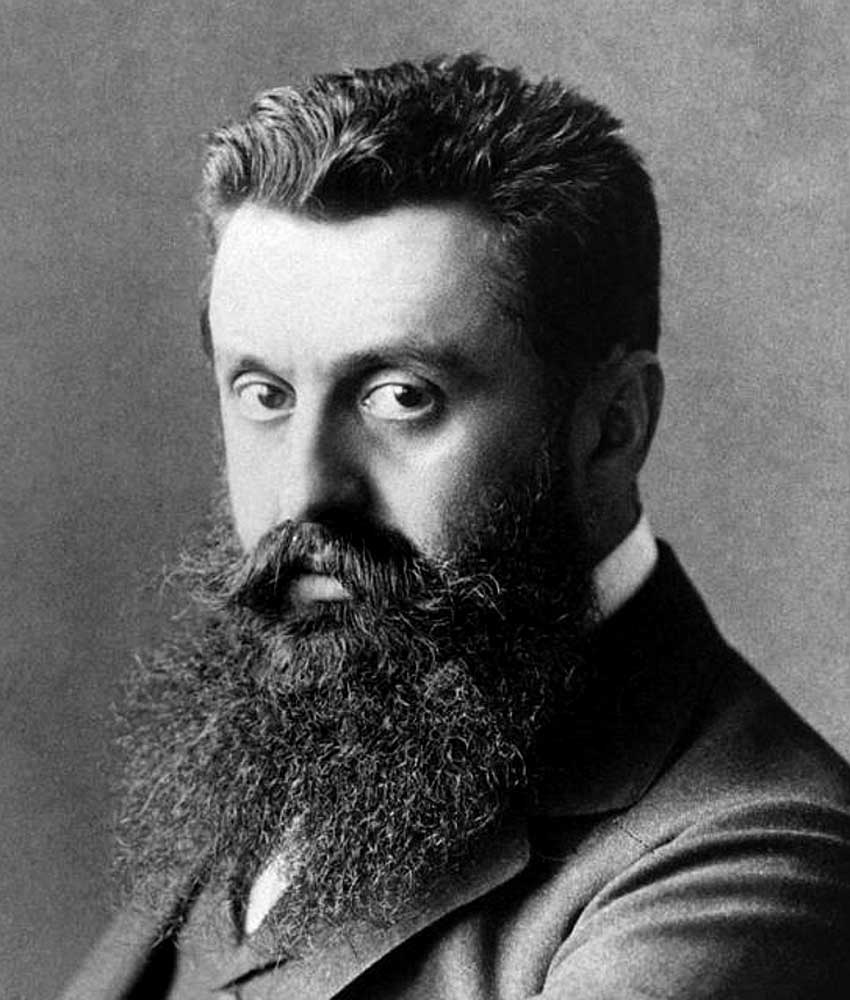
From the time the leadership of Zionism began to move to Berlin (1889), the Ottoman Turks began to worry about the possible influx of Jews into Palestine. In 1893, the Turkish government even banned the emigration of Jews to Palestine. The future Jewish emigration and the attendant demographic changes in Palestine would prove to be a tricky question in the coming years
Important Zionists
Numerous talented Jews have actively promoted Zionism. I will confine myself to mentioning only a few of them, who, as far as their ideas are concerned, are a relevant introduction to the rest of this story.
It is striking that some of them showed great understanding of the possible reactions of the indigenous Arab population of Palestine to the Jewish plans. They realized that Jewish emigration to Palestine could have disastrous consequences.
Leo Pinsker (1821-1891)
Leo Pinsker was born in Poland, studied law in Odessa and medicine in Moscow. He initially felt that the Jews should assimilate to the Russian culture and speak Russian instead of Yiddish.
He lost this belief after the pogroms of 1881-1883.
Pinsker used to wonder why people were always so hostile to Jews and arrived to the following conclusion:
“Fear of Jews is a psychosis. As such, this is a hereditary and incurable disease that has been transmitted for 2000 years”.
As a matter of fact, Jews were considered a people without unity and without land.
Your ideal scapegoats, indeed.
Pinsker therefore believed that Jews should seek their own national identity in Palestine or elsewhere. He also noticed that many Jews, especially Western European Jews, did not feel such urgent need for a national identity of their own. That is why, according to Pinsker, this much needed longing had to be actively aroused if the Jews did not want to continue vegetating in a miserable existence. And then he writes (words that undoubtedly will sound strange in our days):
“Unlike the free peoples, the Jews, like the Negroes and the women, still have to be emancipated.”
This is not impossible because:,
“unlike the Negroes, the Jews belong to a superior race”.
Unfortunately, in Pinskers view, the Jews had lost in the Diaspora the idea that there is such a thing as human dignity and thereby had developed an inferiority complex:
“Humility is our weapon and flight our defense. Fortunately, the Russian pogroms (= the violent persecution of Jews who remained unpunished) have awakened the desire for their own country. For the Russian government, the Jewish people will always remain a ‘foreign’ people. But we must get rid of the illusion that we have some divine mission and are a chosen people.”
For Pinsker it was a dead certainty that, given the circumstances, the Jews had to have their own territory, a safe haven. So much the better if this were to be Palestine, but it would not necessarily have to be Palestine. It could also be an area in North America or an autonomous territory within Turkey the neutrality of which would be guaranteed by the Ottoman Empire and the other superpowers. Colonization should take place slowly:
“with thoughtfulness, caution and perseverance”.
Five years after Pinsker’s death, Theodor Herzl published his well-known book ‘Der Judenstaat’ (1896) in which he designs a blueprint for a future Jewish State. In 1897 he organized the first Zionist Congress in Basel. Initially, he wanted to hold the congress in Munich, but the German authorities were against this plan.
Ahad Ha’am (1856-1927)
Ahad Ha’am (ps.of Asher Zvi Hirsch Ginsberg) was born in Ukraine, in the neighbourhood of Kiev. He was a journalist and wrote the book ‘The Jewish State and the Jewish Problem’ (1897), originally written in Hebrew and translated in 1912 by Leon Simon.
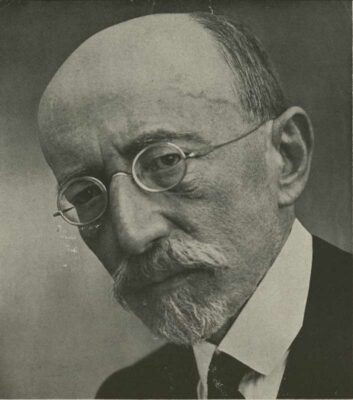
He was the founder of Ha-Shiloah, which would become an important, Hebrew literary magazine.
Ha’am was against politically oriented Zionism and deemed Herzl’s plans not realistic.
He considered Palestine only as a spiritual centre for the Jews in the Diaspora. He was convinced that even if the Jewish State were to become a fact, most Jews would continue to live abroad. Moreover, the Jewish State would not be a safe place
“as long as there would be no general justice between the peoples and the nations”.
History would, unfortunately, prove him right to this very day.
Theodor Herzl (1860-1904)
Herzl was born in Budapest. He was a lawyer, a great organizer and a tireless diplomat. He is the founder of the Zionist World Organization. From 1897 to 1903, in order to achieve his plans for a future Jewish State, he organized six congresses to build an administrative and financial infrastructure to this purpose.
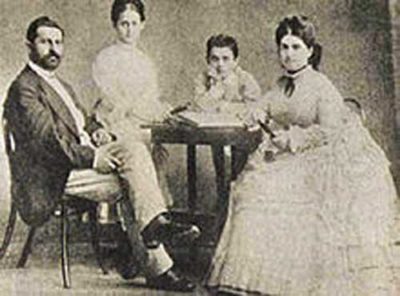
Herzl acknowledges that there is a ‘Jewish issue’ in the world and tries to find a solution for this ‘problem’ in ‘Der Judenstaat’ (1896). Anti-Semitism ― openly or secretly ― is of all times and a political solution must be found. According to Herzl, if youshould want to make an appeal to the ‘goodness of man’ for such a solution, you are a utopian dreamer and a sentimental chatterbox.
Everywhere Jews are attacked and discriminated against, they do not have access to positions in the military or public administration. They are not safe in Russia where Jewish villages are looted as was also the case in Romania, Germany and Austria. In Algeria, fanatical preachers ranted against them. Anti-Semitism and mutual hostility are even increasing. No matter how well the Jews are integrated, they always remain outsiders. The majority decides who is an outsider. Just a matter of brutal power.
Under the protection of European superpowers and in consultation with the authorities, a piece of land, for example in Palestine, Argentina or even East Africa, could be obtained:
“give us the sovereignty over a piece of the earth that corresponds to the legitimate needs as a people and we’ll cope with the rest”.
In this context, Herzl even proposed a deal to the Sultan of the Ottoman Empire whereby the Sultan would give up Palestine in exchange for financial support.
For a Jewish State, Herzl preferred an aristocratic Republic with a professional army. Referenda would be out of the question. Popular consultations were even worse than parliaments with professional politicians. In a future State, everyone would have their own language ― not ghetto languages! ― and as a general language of communication, the most appropriate would be chosen. But not Hebrew.
Herzl has been, understandably enough, mistaken in this respect. Most importantly, Herzl wanted to eradicate the influence of religion. Just look at the difficulties Orthodox Jews and fundamentalist Islamists can cause and admit that Herzl was quite right.
Yithzak Epstein (1862-1943) sounds a word of caution
Yitzhak Epstein was born in Russia. He was a professional teacher and would later settle in Israel. In 1905 he delivered a speech for the 7th Zionist Congress in Basel. In this speech (‘A hidden question’) he warned the Zionists of the conflict that could arise if they did not take sufficient account of the ± 600,000 Arabs living in Palestine. He points out in his address that the Zionists paid no attention to their relations with the Arabs who
“had been living in Palestine for centuries and who did not plan to leave”.
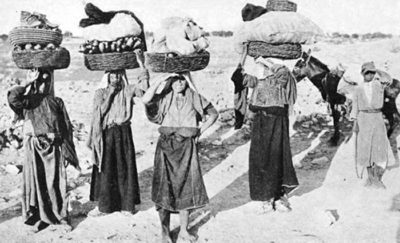
Epstein supposed that the Zionists didn’t know enough about the country and its inhabitants. However, this was not intentional on their part:
“Zionist leaders have continuously studied the rules and the laws of the land, but the fact that people ― its workers and its true owners ― were actually living there, did not cross their mind”.
Epstein recommends an acquisition of sound knowledge of the Arab people and their characteristics, wishes, habits and language.
Prejudice
According to Epstein, there existed among the Zionists all sorts of prejudices about Palestine. Claims that the country had not been properly cultivated and that local residents were lazy did not make sense.
He warned that buying land in Palestine could have major consequences. If the Palestinian farmers realized what this could involve for their lives, they would not remain silent. Therefore the Zionists would do well, after they had bought pieces of land, in allowing Arab farmers to stay and in teaching them how to apply new farming methods.
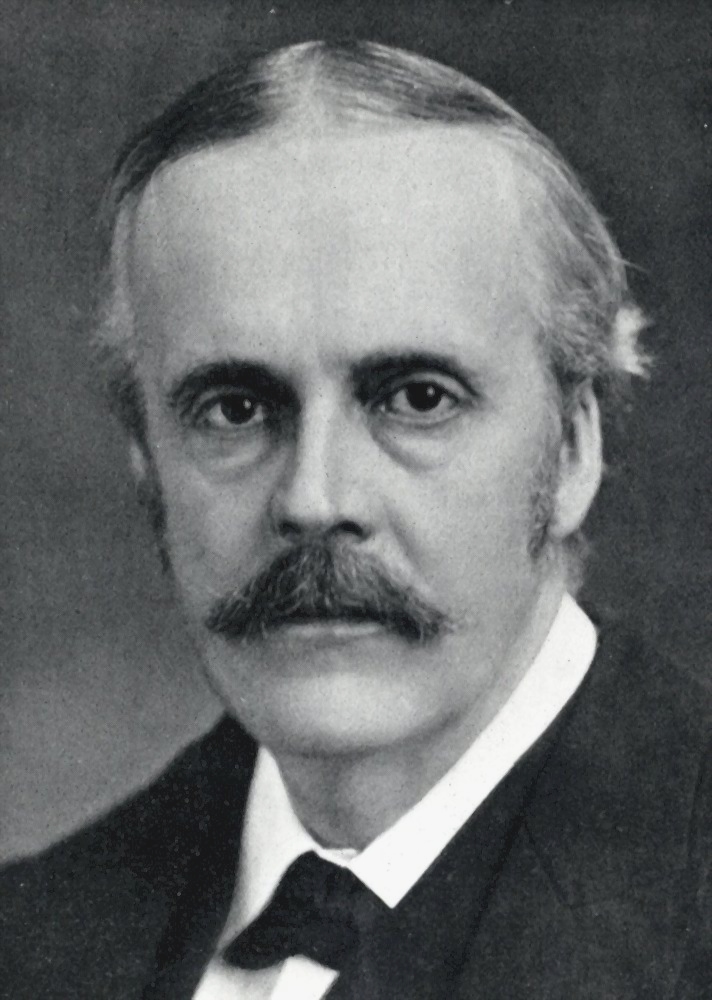
But Epstein’s warnings were disregarded and Palestinian tenant farmers would be systematically expelled from their land. His predictions would prove to be all too correct. The systematic purchase of Palestinian territory would sow the seeds of the ‘Palestinian issue’.
Three years after the Balfour Declaration (1917), Ahad Ha’am, by way of late support for Epstein, wrote about the Palestinian:
“for them, too, the country is a national home, and they have a right to develop national forces to the extent of their ability. This situation makes Palestine the common land of several peoples, each of whom wishes to build its national home there. In such circumstances it is no longer possible that the national home of one of them could be total…”
Introduction to the new edition of ‘At the Crossroads’
Max Nordau (1849-1923)

The Budapest-born Max Nordau (ps. of Simon Maximilian Südfeld), was the son of a rabbi. He was a physician and became the faithful ally of Theodor Herzl. In his well-known speech on the situation of the Jews in the world, Nordau formulated the basis for discussions at the first Zionist Congress in Basel (1897). That situation was miserable, especially in Eastern Europe, North Africa and the West Asia. In Russia, millions of Jews were only allowed to live in a demarcated part of the country (the western provinces) and they were forbidden to exercise certain professions. Exceptions were made for wealthy Jews and academics.
Anti-Jewish sentiments smothered and burned in Austria, Hungary, Poland, Romania and Bulgaria. The emancipation of the Jews in Western Europe was rather a matter of reason (the enlightened logic of the 18th century and the ideas of the French Revolution) than of feeling.
Nordau:
“the condition for Zionism is the existence of a Jewish feeling, of pride in the Jewish past, of a desire to continue the historical evolution of this so venerable and old a race (sic!)”.
Although discrimination in Western Europe did not disappear (‘the reality remains that Jews are not liked, no more than the Negroes and the yellow coolies’), the ‘integrated’ Jews in Western Europe did not feel enthusiasm for the Zionist ideas and the Zionists placed their hope on the Jews in Eastern Europe who, because of the miserable circumstances in which they lived, would be more inclined to emigrate to Palestine. At the end of the 19th century, according to Nordau, the Jews were rather a ‘tribe of despised beggars’.
Nordau was a strong supporter of mass emigration to Palestine. He intention was to strive for half a million emigrants and he calculated that there would only be a part of them, ± 300,000, that would remain in Palestine. Chaim Weizmann thought this was a great idea, but too risky. That is why Nordau distanced himself around 1920 from the leading Zionist institutions.
Nordau was enthusiastic about the results achieved in the Jewish colonies in Palestine and conjures up a lyrical image of these achievements:
“when one sees trees, a shady avenue, flowerbeds, softly murmuring sources amid dry and abandoned plains, they are of Jewish design […]; a modern high school in the midst of uncivilized barbarism, it’s Jewish”.
This set the biased tone.
Max Nordau held the ancient colonial view that Western Europe came to bring civilization. He also believed that the Dutch in South Africa brought civilization and wanted to create what the English had done in India in the Middle East:
“civilizing work, no conquering activities”…
He adds:
“if the Jews want to return to Palestine this is not because they want to plunge into Asian barbarism but to free themselves from the ghetto”.
Remarkably so, Nordau, who was a psychiatrist, also cherishes positive thoughts about the ghetto, although, given the last sentence (‘free themselves from the ghetto’) you wouldn’t think so. He believes that the ghetto for the Jews was not so much a prison as a refuge. With Christians, they only maintained business contacts, but, when seeking recognition, it was in the ghetto, among their own people, where they found it.
Chaim Weizmann (1874-1952)
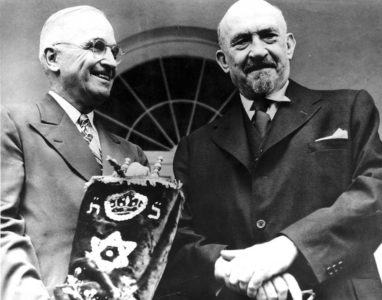
The White-Russia-born Chaim Weizmann was an independent and great thinker who was in favour of diplomacy and against the use of violence. In 1903, he said in Bern that Herzl had made it clear at the 6th Zionist Congress that the superpowers finally considered Zionism to be a real organization, but at the same time that the Zionists were unable to achieve their purpose of founding their own State in Palestine. The proposal to create a territory of their own in East Africa (Kenya) had therefore to be seriously considered.
But the participants in Congress voted against this proposal and the High Commissioner for African Affairs Sir Percy Girouard told Weizmann in London:
“If I were a Jew, I wouldn’t give a penny and no human sacrifice for such a thing, because you simply cannot trade Palestine for another country”.
Weizmann was in agreement with the latter. The condition for the establishment of a future Jewish State was that there should be first a certain numerical Jewish presence in Palestine. Political rights could only be pursued afterwards:
“We cannot create a Jewish State in a country where there are no Jews”
Weizmann and the Arabs
In 1907 Weizmann said at the Congress in The Hague that they had to make it perfectly clear to the governments that the Jews regarded Palestine as their homeland. Weizmann said a few years later (Paris, 1913):
“the Arabs are a problem. They are in fact the inhabitants of the country. They are afraid that Jewish colonization will drive them out, and we have a duty to deal with those fears and show them that the country has room for us and for them. We have to explain to them that we want to work with them and that the establishment of a large Jewish community would benefit them.”
A year later, Weizmann said he was aware that people considered the Zionists as a bunch of idiots and that if they were ‘normal’, they would not go to Palestine at all. But if you didn’t want to walk a difficult path, Weizmann said, it would better to stay at home because
“with fear and timidity you can’t construct the eternal building of the homeland”
Weizmann on the Balfour Declaration
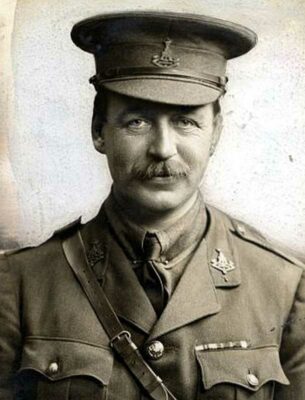
After the Balfour Declaration (1917) Sir Mark Sykes urged Weizmann
“not to fail to take into account the Arab issue and not to forget that Jerusalem is a holy place for three religions”.
The fact that Weizmann took this advice at heart is evidenced by the words he wrote in Manchester (1917):
“one of our essential obligations will be to achieve a desired understanding with our neighbours, the Arabs and the Armenians. Palestine has enough land, air and water for all of us.”
A year later, in Jerusalem:
“any silent or outspoken fear of the Arabs that they will be driven out of the land on which they live today is based on a misunderstanding or slanderous talk on the part of our enemies.”
As a matter of fact Weizmann hopes for a strong political unity among the Arabs. He mentions the magnificent Jewish-Arab civilization of the ‘Spanish’ times when ‘our best literary men thought and wrote as easily in Arabic as in Hebrew’. And as regards the immediate future:
“we, Zionists, want the country’s highest political leadership (in Palestine) to be entrusted to one of the most democratic countries in Europe, which will be appointed by the League of Nations”.
On the occasion of the laying of the foundation stone of the Hebrew University in Jerusalem (1918), Weizmann spoke out for the use of Hebrew,
“the only language in which one Jew can communicate with the other”.
He also expressed the hope that there would be given special attention to the study of Arabic and other Semitic languages.
Weizmann writes that the Balfour Declaration (see below) had unexpectedly fallen into their lap. Although it had been brewing and the foundation of it was laid years before, this meant that the English government finally took the Zionists seriously.
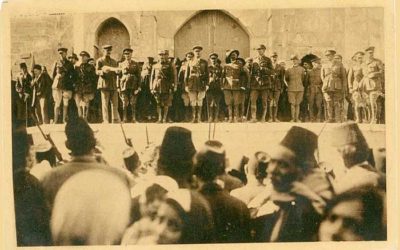
Weizmann noted in Paris (1918) that there was a gap between British military administration in Palestine (hyperconservative) and Downing Street (progressive) of ‘at least five centuries’.
Allenby, the ‘liberator of Palestine’ had to be convinced and Weizmann succeeded in doing this.
Weizmann:
“we have convinced the whole world except the Jews”.
In 1930, Weizmann gave a speech at the German Zionist Congress in Jena at which he talked about the relationship between Jews and Arabs:
“the two nations are elements with equal rights to build the country. We must work together, and if one day we form the majority, we will not oppress them through the power of the majority, as we don’t want to be oppressed by them now.”
Martin Buber (1878-1965)
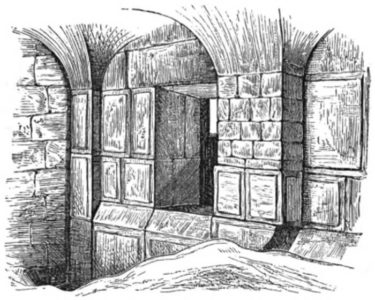
Martin Buber was born in Vienna and taught philosophy and sociology at the universities of Frankfurt and Jerusalem. He was for three years editor-in-chief of ‘Die Welt’, a magazine founded by Herzl. From 1916 onwards he had his own magazine: ‘Der Jude’.
Buber advised the Zionist leaders to withdraw from English custody and to make an alliance with the Arab people. He adopted the principle of the division of Palestine (United Nations, 1947) to give holocaust survivors the chance to emigrate. But he was also a strong supporter of a lasting and friendly relationship with the Arabs in all areas of public life. He regretted that Europe failed to make it clear to the Arabs that Jewish emigration would benefit them both economically and culturally.
Vladimir Zeev Jabotinski (1860-1940)
The Odessa-born Jabotinski was active in many different, mostly activist areas. He was a Zionist, a poet, a translator, a journalist, a speaker and a soldier. After the pogrom in Kishinev (1903), he founded Zionist self-defense groups. He also recruited Jewish volonteers in order to free Palestine from the Ottoman Turks. In 1923 he became the founder of Betar, a Zionist, combative Jewish youth association that later on partly merged into the military organization Haganah and the illegal Irgun, of which Israel’s 6th prime minister, Menachim Begin, was a long time commander.
Jabotinski had strong views on the rights of Arabs and Jews. He thought it unthinkable that the Arabs could be expelled. Palestine, he said, has always been a country inhabited by two nations. He was in favour of equality of rights. Jabotinski, however, was also a realist who realized that it was useless to expect an agreement between the Jews and the Arabs and that the Arabs would never accept a State in which the Jews would form a majority.
Jabotinski (1923):
“every nation has resisted intruders. Each indigenous nation has regarded its country as a ‘National Home’. That’s what the Arabs want too. They will want to prevent Arabic Palestine from becoming ‘Eretz Israel’. The Arabs don’t want Jewish immigration”.
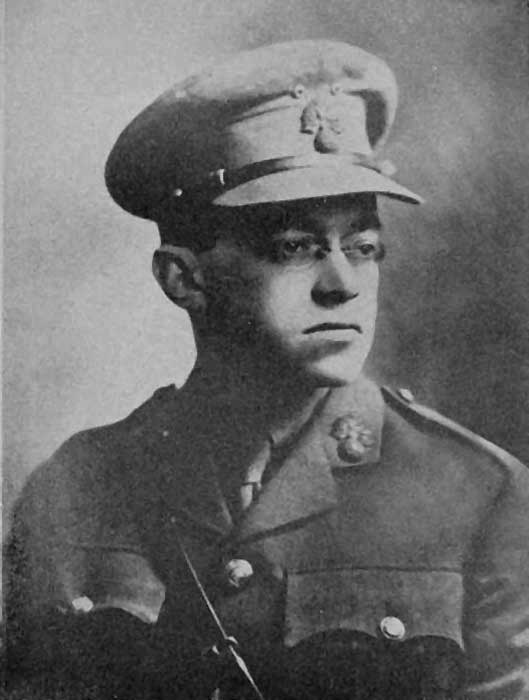
Jabotinski came to the conclusion that the Jews should renounce to immigration or , if they planned to immigrate, should seek protection from a power that was not dependent on the local population, and that they should be sheltered by an ‘Iron Wall’ that could not be demolished by that population.
We see that almost a hundred years later Jabotinski is served hand and foot. Jabotinski’s wall, although not of iron, is almost ready and separates Arabs and Israelis from each other on the West Bank As a matter of fact the International Criminal Court in The Hague has declared this Wall illegal.
On the other hand Jabotinski wrote in 1933 that the Jews had become aware of the fact that Zionism was a moral phenomenon which had the right to exist. If the whole civilized world has recognised the right of the Jews to return to Palestine, then the existing population has no right to prevent this in the name of ‘democracy’ or ‘self-determination’. And, thinking of the size of the whole Arab world:
“whoever has too much territory is supposed to cede a part of it to those who have too little. […] Expropriation of land from a people who possesses large areas in order to provide a Home for a wandering people is an act of simple justice”.
The run-up to the Balfour Declaration
The beginning of the 20th century was a time marked by the advancing imperialist, genocidal politics of the European superpowers that had been deployed in the 19th century. Algeria had been occupied by the French (1830), Tunisia and Libya by Italy, and Egypt by England. Namibia became a German protectorate in 1884.
The Suez Canal and the road to India were a source of concern for the English who would do anything to secure their empire. Palestine would play an important role in this respect as a possible port and oil terminal and was seen as a vital connection and buffer that would safeguard the English position. That was an important reason for the English to support the Zionist movement. They would rather have the Jews as an ally in Palestine than the Arabs.
But, characteristic of the English diplomacy, the English wanted to keep both sides satisfied and shrouded their diplomacy in vagueness and shadowy commitments. The Balfour Declaration, which will be further discussed below, became a document in which British imperialist power pursued its own goals through a subtle game.
Perfidious Albion
In the middle of World War I, in which the Turks were allies of Germany, a correspondence took place between MacMahon, the British High Commissioner in Kairo, and Sharif Hussein of Mecca.
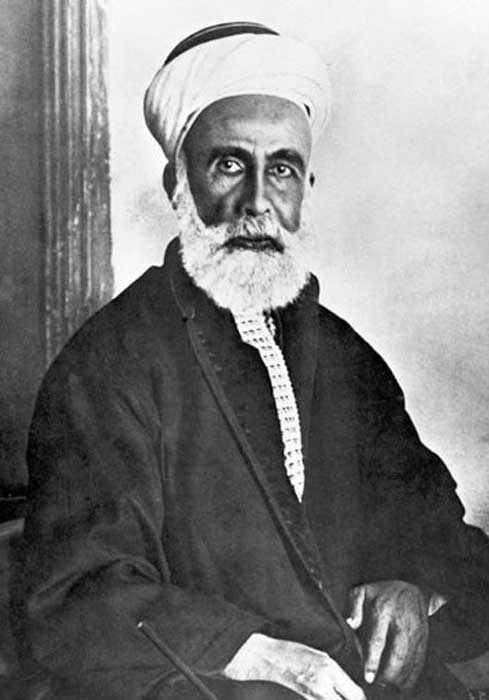
Hussein wanted to help the British against the Ottoman Turks in exchange for a post-war Arab State that would be an ally for England.
MacMahon avoided making firm commitments but hinted that the British were sympathetic to that claim. MacMahon’s intention was just to win time in a cunning way in order to obtain a better negotiating position after the war.
In the Damascus Protocol of 1915, also signed by Sharif Hussein, the Arabs had clearly defined their territorial borders in exchange for their support of the British. Broadly speaking, the Arab State, as imagined by the English, ran, in the North, to the Persian border, in the East to the Persian Gulf, in the South to the Indian Ocean and in the West to the Red Sea.
In 1917, consultations had taken place between British and Jewish representatives, including Chaim Weizmann, who, since Herzl’s death, had continued to lobby for a ‘National Home’ for the Jews in Palestine. The outcome of the consultations was that there was a clear preference for a British Protectorate in Palestine. France accepted the proposal, although not wholeheartedly. Germany had no further interest in the plan.
Opponents to a Jewish National Home
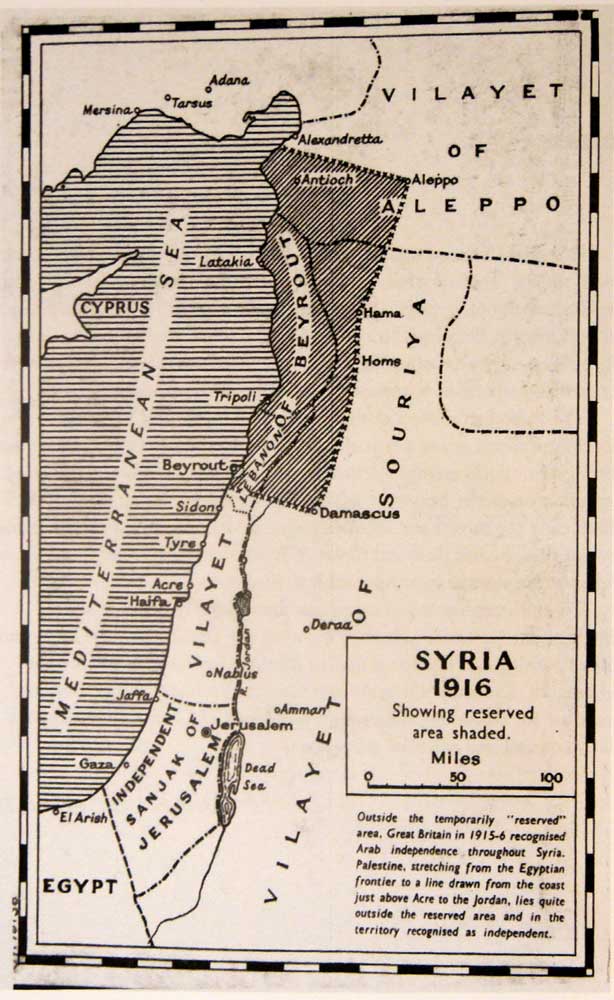
There were also opponents to a National Home. For example the president of the Anglo-Jewish Association, Claude Montefiore, who had understood that the Jews would rather have autonomy within Russia and not outside Russia.
The President of the Jewish Board of Guardians had the same idea and the Secretary of State for Indian Affairs, Edwin Montagu, was even vehemently opposed to the Zionists’ ambitions. The scientist, educationalist and substitute rabbi Sir Philip Magnus did not accept ‘that the Jews regard themselves as a nation’.
Lord Curzon, leader of the House of Lords and former Viceroy of India, felt that the term ‘National Home’ was open to interpretation. What would be the status of non-Jewish citizens? Following the Balfour Declaration, Lord Curzon commented:
“I do not myself recognise that the connection of the Jews with Palestine, which terminated 1200 years ago, give them any claim whatsoever”
Noten
[1] Source: 1570 Palestinae Hondius Palestinae Sive Totius Terrae Promissionis Nova Descriptio Auctore Tilemanno Stella Sigenens ― by Jodocus Hondius (1563–1612)
[2] Source: Henry John Temple, 3rd Viscount Palmerston by John Partridge, c. 1845 ― by John Partridge
[3] Source: Birnbaum Nathan ― photo by unknown, עברית: The Zionist Archive
[4] Source: Theodor Herzl ― photo by unknown
[5] Source: Ahad Ha’am (1856-1927) ― photo by unknown, National Library of Israel, Schwadron Collection
[6] Source: Arthur Balfour (c. 1890) ― photo by unknown
[7] Source: Max Nordau (1900-1919) ― photo by unknown
[8]Source: Harry Truman and Chaim Weizmann (1948), Truman Library Institute
[8a]Source: Sir Mark Sykes, 6th Baronet (1879-1919) ― photo by unknown
[9] Source: Postcard showing General Allenby with the Declaration of Independence, Tower of David Museum Archives
[10] Source: Zeev Jabotinsky in uniform ― photo by unknown
[11] Source: Sharif Hussein ― photo by unknown
[12] Source: Territory promised to Hussein (1939) ― Balfour project


